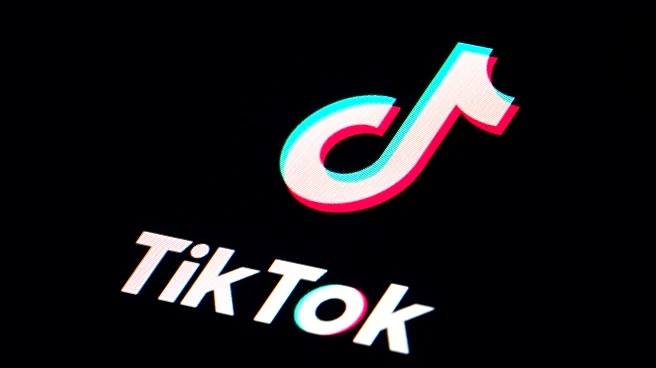What is the story about?
What's Happening?
A recent report by the academic publisher Wiley highlights a growing mistrust among scientists towards artificial intelligence (AI), despite its increased usage in research. The report, which previews findings from 2025, indicates that scientists are less confident in AI's capabilities compared to 2024. Concerns over AI 'hallucinations,' where large language models present fabricated information as fact, have risen significantly, with 64% of scientists expressing worry, up from 51% the previous year. Additionally, anxiety over security and privacy has increased by 11%, alongside heightened concerns about ethical AI and transparency. The report also notes a decline in the belief that AI surpasses human abilities, dropping from over half of all use cases in 2024 to less than a third in 2025.
Why It's Important?
The growing skepticism among scientists regarding AI has significant implications for the tech industry and research fields. As AI becomes more integrated into scientific research, the decline in trust could impact the adoption and development of AI technologies. Concerns about AI hallucinations and ethical issues may lead to increased scrutiny and demand for more robust AI systems. This shift in perception could influence funding priorities, regulatory measures, and the direction of future AI research. Companies developing AI technologies may need to address these concerns to maintain credibility and ensure the continued integration of AI in scientific and commercial applications.
What's Next?
The report suggests that further studies are needed to understand the widespread nature of mistrust in AI. As scientists continue to express doubts, there may be calls for more transparency and ethical guidelines in AI development. The tech industry might face pressure to improve AI systems to reduce hallucinations and enhance security measures. Researchers and developers may collaborate to address these issues, potentially leading to innovations in AI technology that prioritize accuracy and ethical considerations. Stakeholders, including academic institutions and tech companies, may engage in discussions to establish standards that ensure AI's reliability and trustworthiness.
Beyond the Headlines
The decline in trust towards AI among scientists could have broader cultural and ethical implications. As AI technologies permeate various aspects of society, public perception may be influenced by the skepticism of experts. This could lead to a more cautious approach to AI adoption in sectors like healthcare, law, and education. Ethical considerations, such as the impact of AI on employment and privacy, may gain prominence in public discourse. The evolving relationship between humans and AI could shape societal norms and values, prompting discussions on the role of technology in everyday life.















